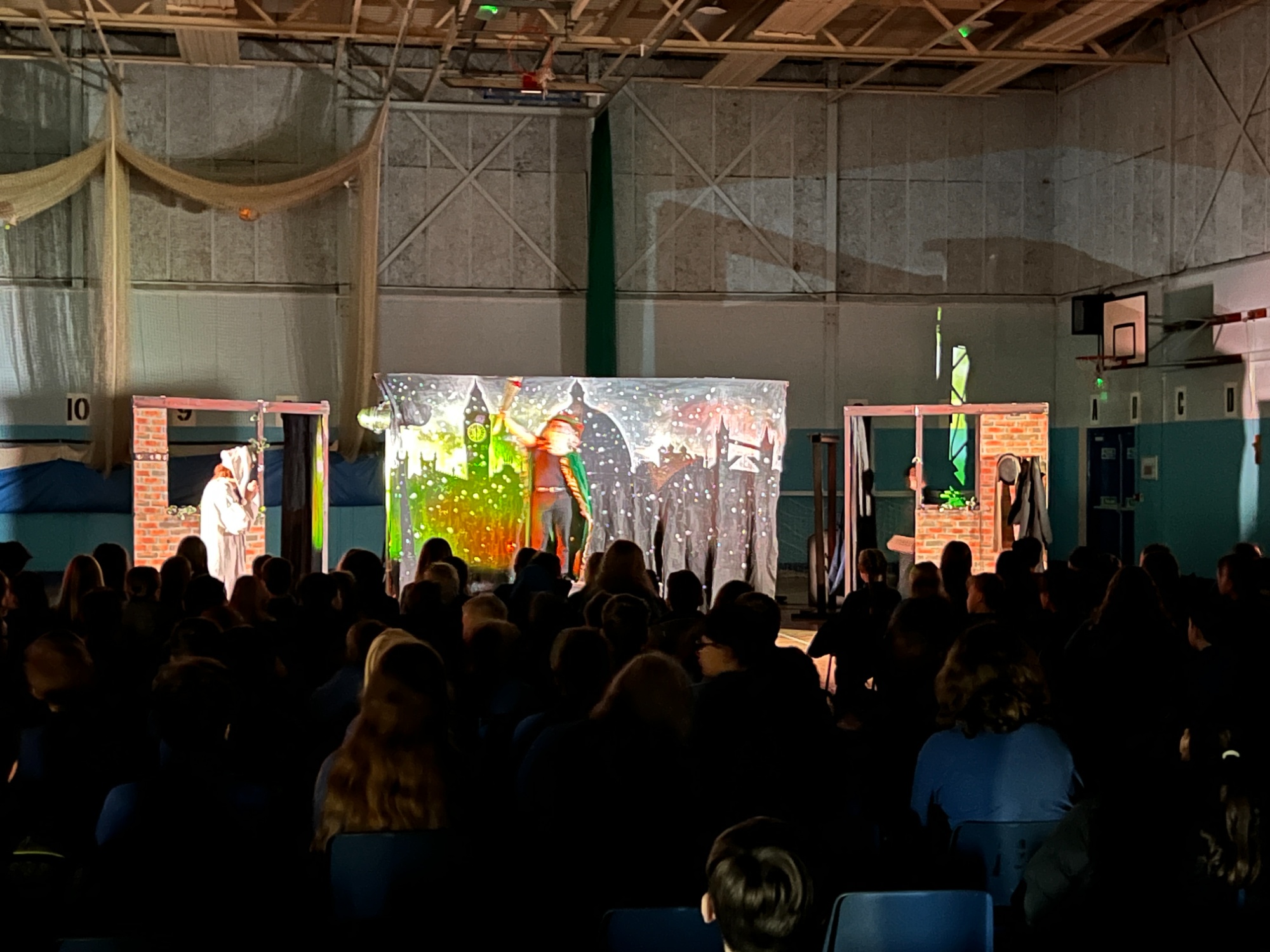English Language
EXAM BOARD
AQA
ASSESSMENT FORMAT
100% terminal examination
GRADE METHOD
9-1
‘English at The Henry Beaufort School allows me to develop my understanding of other people’s perspectives due to the diverse range of Literature we study.’ – Jasmin W, Year 11
‘I like English as it can teach you vital life skills transferable to your career, such as collaboration and empathy.’ – Evie C, Year 11
‘In English, there’s an inviting atmosphere, where everyone is encouraged to share their views.’ – Isaac D, Year 11
‘The English Department go above and beyond to help students aim high for the grade that they want to achieve.’ – Emily T, Year 11
Overview
Welcome to English at The Henry Beaufort School, where we ignite the imagination, foster critical thinking, and explore a diverse range of literature and non-fiction texts from the 19th century to the present day over the course of our students’ 5-year journey.
Our intention is to cultivate students' creativity through writing, encouraging them to unleash their imaginations and craft narratives that resonate. We aim to nurture a passion for reading while honing the ability to critically evaluate and analyse texts, empowering students to engage thoughtfully with diverse ideas and perspectives.
At The Henry Beaufort School, our 5-year curriculum map ensures that students in year 7&8 are well-prepared to begin the study of GCSE English from year 9 onwards. Our 5-year curriculum map includes the study of a comprehensive range of literature and non-fiction texts that span centuries. From year 7 onwards, students’ study both timeless classics (such as ‘Dickens’ ‘A Christmas Carol’ in our Y7 ‘Glance at the Gothic module’ and Shakespeare’s ‘Romeo and Juliet’ in Y8) alongside contemporary works from influential figures such as Malala Yousafzai and Emma Watson, in our Y7 ‘Inspirational People’ module and Marcus Rashford’s ‘You are a champion!’, allowing students to draw inspiration from the achievements of these modern-day icons, as well as exploring the impact of social activism through literature. To view our full 5-year Curriculum Map, please click on the link below.
Our commitment is not only to academic excellence but also to nurturing well-rounded individuals with a profound appreciation for literature's power to inspire, challenge, and provoke thought.
English Staff
Ms V Gist: Academic Leader
Miss C Knight: Academic Leader
Mr Harry Cameron: Subject Leader
Mrs Sarah Fradley: Subject Leader
Miss Hannah Brown: English Teacher
Miss Rachel Bean: English Teacher
Ms Victoria Herbert: English Teacher
Ms Sarah Howard: English Teacher
Mrs Ami Hartfield: English Teacher (ECT2)
Mr Lucien May: English Teacher (ECT 2)
GCSE
The subject content of the syllabus relates directly to the programme of study for Years 10 and 11 of the National Curriculum.
Students will be expected to produce a variety of fiction and non-fiction writing, demonstrating an awareness of the use of language in appropriate forms. Students will also need to acquire skills in information retrieval in response to a range of fiction and non-fiction texts, from the 19th, 20th and 21st centuries.
Examinations:
Paper 1: Responding to one literature fiction text and writing descriptively (Explorations in creative reading and writing).
Paper 2: Responding to non-fiction texts and writing to present a specific viewpoint (Writers’ viewpoints and perspectives).
Both papers will assess the skills of retrieving relevant information from a text; analysing language and structure of a text using appropriate subject terminology; comparing writers’ ideas and perspectives; evaluating texts critically; communicating and organising information effectively; writing accurately using a varied range of vocabulary.
Suggested Revision Guides and Workbooks for Year 9-11
AQA ENGLISH LANGUAGE – exams 2017 onwards:
- Collins ‘SNAP Revision - Reading’- for AQA English Language Papers 1&2
- Collins ‘SNAP Revision - Writing’- for AQA English Language Papers 1&2
Results:
We are very proud of our 2024 English Language results, which show an upward trajectory in our 5-year trend:
- 86% of students attained a 4 or above
- 29% of students attained a 7 or above
- 11 students attained a 9
Provisional English Progress8 score: 0.6 (meaning, on average, students make over half a grade more progress than their KS2 scores predict)















